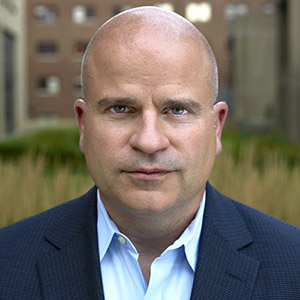
With more than $2.5 million in support from the Centers for Disease Control and Prevention (CDC), the School of Public Health will establish the Public Health Center of Excellence on Dementia Caregiving. It is the result of the BOLD (Building Our Largest Dementia) Infrastructure for Alzheimer’s Act passed into law in 2018.
The center will focus on identifying and disseminating promising research findings and best practices for addressing social determinants of health to support family members, friends, and other unpaid individuals who care for people living with dementia. The center’s ultimate goal is to ensure systematic implementation of dementia care tools and practices by state, local, tribal, and other public health programs across the U.S.
More than 16 million unpaid individuals care for people living with Alzheimer’s disease and related dementias. These caregivers are most often relatives, friends, acquaintances, or partners of people living with dementia. The economic value of the help provided by caregivers was estimated to be $244 billion in 2019, suggesting a heavy reliance on unpaid caregivers for the delivery of long-term services and support in the U.S.
“Our over-reliance on family members and other unpaid relatives to provide care to Americans living with dementia at home is unsustainable,” says Joseph Gaugler, the Robert L. Kane Endowed Chair in Long-Term Care and Aging in the School of Public Health and director of the new center. “The center will help us to bridge the gap between the study of promising evidence-informed supports and having those supports actually benefit those who help people with dementia on a daily basis.”
In response to the needs of caregivers of people with dementia, the Public Health Center of Excellence in Dementia Caregiving features a robust, engaged network of 17 leading national organizations that will make available tools, resources, and evidence-informed strategies to assist caregivers of people with dementia throughout the U.S.
“I am thrilled to be part of this BOLD initiative to shine light on the hidden work of the millions caring for people living with dementia with the hope of lifting the veil on their unmet needs and shaping policies to support their indispensable role,” says Laura Gitlin, a member of the Public Health Center of Excellence and professor and dean at Drexel University’s College of Nursing and Health Professions.
The Public Health Center of Excellence in Dementia Caregiving further emphasizes the leadership of the School of Public Health’s and its Center for Healthy Aging and Innovation in the design, evaluation, dissemination, and implementation of dementia care innovations in Minnesota and throughout the U.S.
“Healthy aging and innovation to address its challenges are critical to the mission of the Public Health Center of Excellence in Dementia Caregiving. This achievement will certainly further strengthen the important work of Prof. Gaugler’s team in the School of Public Health,” says John Finnegan, dean of the School of Public Health.
The Public Health Center of Excellence in Dementia Caregiving was funded by CDC Grant No. 1 NU58DP006910-01-00.

